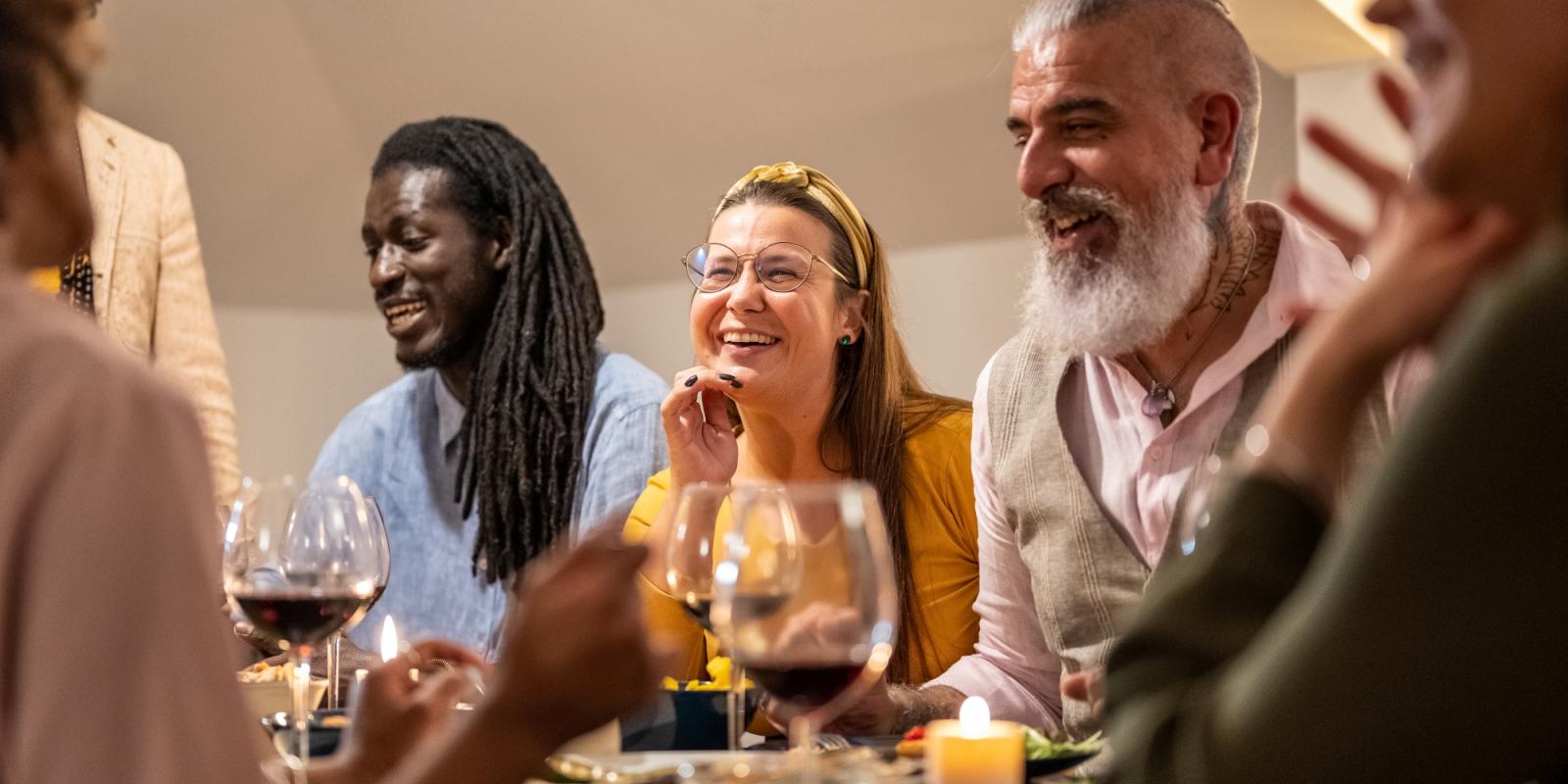Jewish tradition teaches “L’dor v’dor”—from generation to generation. It suggests that wisdom resides in the older generation and we pass it down to those younger than we are. But I think the truth is “generation with generation”—wisdom and connection flow in both directions.
Here’s how I learned that. After my husband died, I discovered I hated being alone. Actually, the revelation came to me as an epiphany the night I came home to my empty house to discover two huge racoons in my bedroom. They came in through the cat door. After screaming and shooing them out with a broom, I made the decision to get a roommate.
So, I rented a room in my home to a younger person. First it was a cello player here on a summer internship, then it was a graduate student from the Zelikow School of Jewish Nonprofit Management. In each of those cases my daughter warned me: “Mom, remember, you are looking for a friend and they are looking for a cheap place to live.”
I learned from those first experiences that I didn’t want to just rent a room. What I really wanted was to share my home, to share food, to occasionally eat meals together, to come home on a Friday night to find younger people sitting around the Shabbat table singing, and for me to be invited to join them.
‘Benefits for me: my world has expanded as they have introduced me to new ideas.’
I wanted for each of us to be able to invite overnight guests, and to meet each other’s friends. Two years ago, through a listing at my seminary, I found my housemates, a couple who were in their fourth year of the five-year rabbinical program. When they moved in, we wrote a document that included these words:
“Abraham and Sarah began a long Jewish tradition of hosting guests openly and eagerly; so, too, do we want our home to be filled with joy and camaraderie. Housemates should feel free to host guests when possible. We expect that there might be familiar faces coming and going. Both housemates understand this agreement as a kind of brit (covenant), illuminated by the teaching of Jewish tradition, Proverbs 24:3-4, ‘By wisdom a house is built, and by understanding it is established; by knowledge the rooms are filled with all precious and pleasant riches.’ We look forward to sharing the “precious and pleasant riches” of a shared home and an evolving relationship. We understand a shared home to reflect shared values, interests, mutual respect, and open communication, and a place that each of us feels comfortable and at home. Makom means “place” and is also a name for the Divine. We will strive to create a home that is also a sacred place.”
These riches are indeed precious. My housemates have become my friends. We celebrated their Ordination as rabbis together with many members of their family from around the country, with several of them staying at our home and many others celebrating with a festive party at the house. As the time for their Ordination as rabbis drew near, they wanted to help me find a new housemate, so they talked with members of the second-year class to identify the person they thought would be the best match. They moved out on Sunday morning; my new housemate, a third-year student, moved in the same evening.
There are so many benefits of home sharing beyond the relatively small amount of rent that can come with it. One is the tech help that a Millennial digital native can bring to most of my computer or iPhone emergencies.
Benefits for me: my world has expanded as they have introduced me to new ideas, new technologies and new approaches to the Jewish future.
For them: they have been enriched by my experience as a rabbi and teacher for more than 40 years. We have read each other’s sermons, shared meals with each other’s friends, and supported each other in our projects. They will be better rabbis because of this; I have become a more engaged retired rabbi. We are all grateful for these blessings.
There is no question that my experience is sui generis. But in sharing my story I heard so many other stories—of former academics sharing their homes with students in their communities, of older adults who have aged in place with the help of younger tenants who have become chosen family.
There are now many programs advancing intergenerational home sharing. One is the Center for Health and Aging Innovation at New York University, which makes matches between adults with a spare room and NYU graduate students, and offers the hosts a cohort that connects with each to foster a sense of community.
Find others through the National Shared Housing Resource Center.
And, no surprise: there is even an app for it, here are two: Nesterly, and Silvernest.
Generations with generations, precious riches indeed.
Rabbi Laura Geller is the Rabbi Emerita at Temple Emanuel of Beverly Hills, co-author of Getting Good at Getting Older (Behrman House, 2019), a founder of ChaiVillageLA and Chair of the Synagogue Village Network.
For an in-depth look at Solo Aging, including more on shared housing, please check out the Summer Generations Journal when it releases on June 21.













